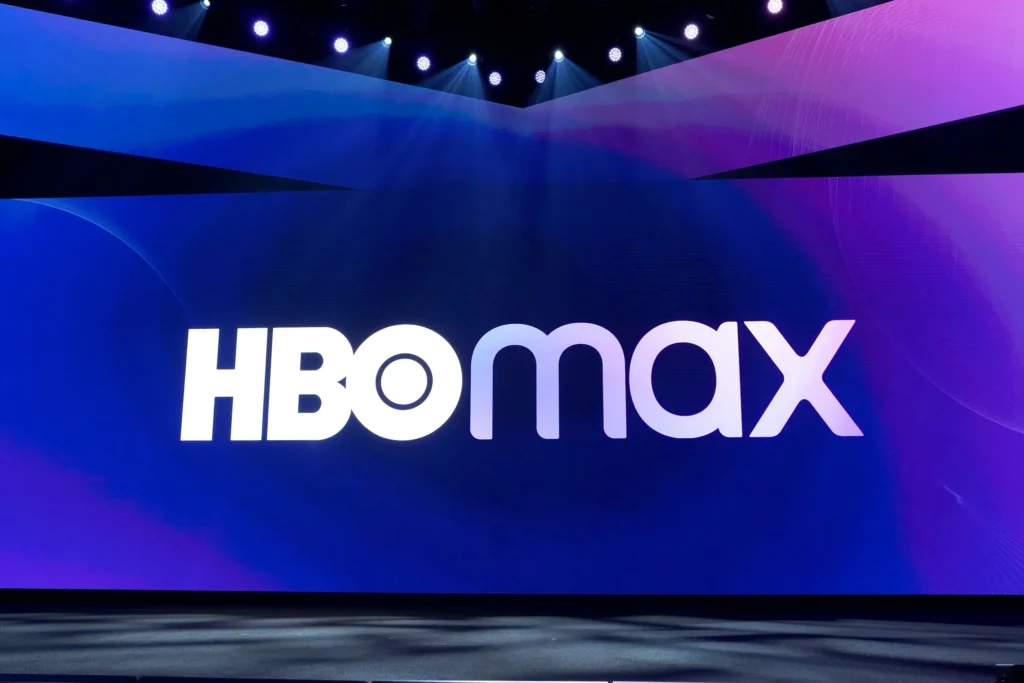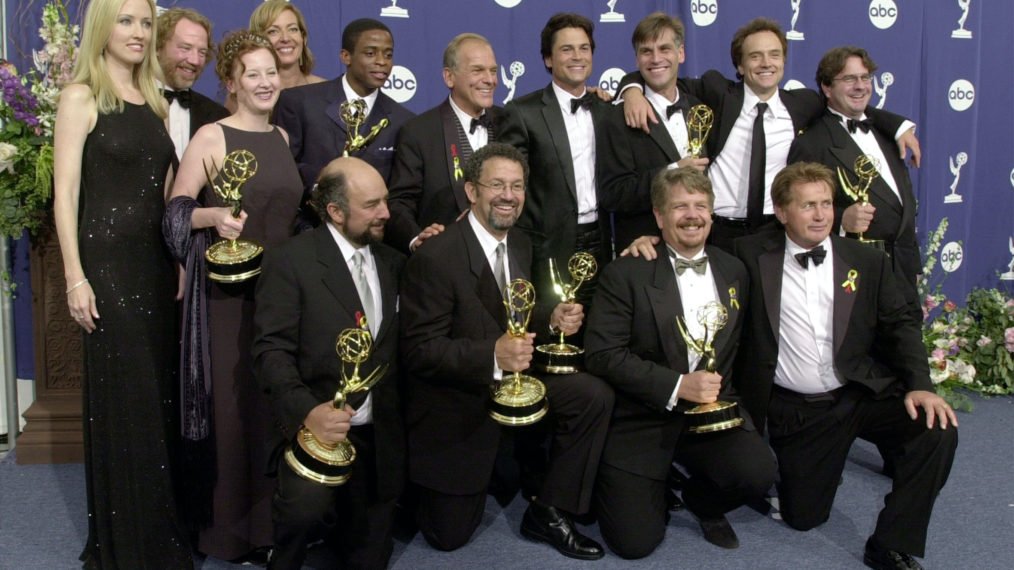The Primetime Emmy Awards stand as the ultimate recognition in American television, a night where the industry’s best gather to celebrate outstanding achievements across drama, comedy, variety, and more. For decades, these awards have represented not just a ceremony, but a cultural event that reflects television’s evolution and its powerful impact on society.
At their core, the Emmys are about honoring storytelling. Whether it’s a gripping crime drama, a witty sitcom, or a groundbreaking documentary, the awards highlight the immense talent and creativity shaping our screens. Beyond that, they serve as a historical marker—capturing moments where television mirrored society’s struggles, victories, and shifts.
Why do they matter so much? Because television is more than entertainment; it’s an art form that influences culture, sparks conversations, and brings people together. Winning an Emmy isn’t just a trophy on a shelf—it’s an achievement that can change careers, elevate a show’s status, and cement a performer’s legacy.
The Primetime Emmys are more than a night of glitz and glamour; they’re about recognizing hard work, creativity, and the power of storytelling that resonates with millions worldwide.
Table of Contents
History of the Primetime Emmy Awards
The Emmy Awards were first introduced in 1949, during a time when television itself was still in its infancy. Back then, the industry was trying to establish itself alongside film and radio, and recognition was necessary to legitimize the medium. The first ceremony was held at the Hollywood Athletic Club, with just a few categories compared to the dozens we see today.
Over the decades, the Emmys grew in scale and prestige. By the 1950s and 60s, as television became a household staple, the awards gained national attention. In the 1970s and 80s, when television programming diversified and globalized, the Emmys evolved further, adding new categories to keep up with changing content.
Several milestones stand out in Emmy Awards history. For instance, in 1981, Hill Street Blues won a record number of awards for a drama series, reshaping how television dramas were viewed. In 2015, Viola Davis became the first Black woman to win the award for Outstanding Lead Actress in a Drama Series, marking a pivotal moment in representation.
From live television in the early days to today’s streaming revolution, the Primetime Emmys have mirrored the constant evolution of the television industry. Each decade tells a new story, not just about TV shows but about cultural shifts that shaped what audiences wanted and needed.
The Emmy Statuette
At the heart of the Emmy Awards lies the iconic golden statuette, instantly recognizable for its elegant design. The figure of a winged woman holding an atom has become a universal symbol of television excellence. But there’s more to it than meets the eye.
The statuette was designed in the late 1940s by television engineer Louis McManus, who used his wife as the model for the figure. The wings symbolize the muse of art, while the atom represents the science of television—a perfect blend of creativity and technology. This design wasn’t just about aesthetics; it captured the very essence of television as both an artistic and technological medium.
Standing nearly 16 inches tall and weighing about 6 pounds, each statuette is handcrafted with remarkable precision. It’s made of copper, nickel, and silver, and finished with 24-karat gold plating. Despite its glamour, the statuette is not mass-produced; each one is carefully cast and assembled, reflecting the exclusivity of the award itself.
Interestingly, winners don’t get to take the statuette home immediately. After the ceremony, their names are engraved on the base and then sent to them. This ensures that each award is personalized, making it truly unique. Over the years, the statuette has become not just a trophy but a symbol of achievement that holds immense emotional and professional value.
Categories of the Primetime Emmy Awards
One of the reasons the Emmy Awards have maintained their relevance is the sheer breadth of categories they cover. From acting and directing to writing and technical achievements, the awards ensure that all aspects of television production are recognized.
The acting categories remain the most popular and closely followed. Awards for lead and supporting actors in both drama and comedy series often generate headlines, with winners going on to become household names. Iconic performances in shows like The Sopranos, Friends, and Game of Thrones have been immortalized through Emmy recognition.
Beyond acting, the directing and writing categories highlight the creative vision behind shows. These awards recognize the masterminds shaping stories that captivate audiences. Writers and directors may not always get the same spotlight as actors, but their wins are crucial in elevating a show’s legacy.
The Creative Arts Emmys, often held a week before the Primetime ceremony, celebrate the unsung heroes of television—editors, sound designers, costume creators, and many more. These categories might not get prime-time attention, but without them, the magic of television would never exist.
Over the years, new categories have been introduced to reflect changing trends. For example, with the rise of streaming and limited series, categories have expanded to include anthologies and new formats. This adaptability ensures that the Emmys stay relevant, honoring not just traditional TV but also modern innovations in storytelling.
The Voting and Nomination Process
The path to winning an Emmy Awards is not as straightforward as it may seem. The process begins with submissions made by networks, production companies, or even individual performers. Once submitted, the Television Academy—comprising thousands of industry professionals—reviews and votes on entries.
Nominations are decided by peer groups within the Academy. For instance, actors vote for actors, writers vote for writers, and so on. This peer-based voting ensures that recognition comes from professionals who truly understand the craft. Once nominees are announced, the final voting round begins, where the broader Academy membership casts their votes to decide the winners.
But like any awards system, the Emmy voting process has faced criticism and controversies. Some argue that it favors big networks and popular shows, while smaller productions often get overlooked. Others point out biases in terms of genre—comedies and dramas often dominate, while reality shows or niche content may struggle for recognition.
In recent years, efforts have been made to make the process more transparent and inclusive. Digital platforms now allow wider participation, and campaigns for greater diversity have reshaped nominations. Still, the debate around fairness and representation remains ongoing, reminding us that while the Emmys are prestigious, they’re not without flaws.
Major Networks and Streaming Platforms at the Emmys

For decades, the Emmy stage was dominated by traditional broadcast networks like NBC, CBS, and ABC. These giants were once synonymous with television excellence, producing classics like Cheers, The Mary Tyler Moore Show, and ER. However, as television evolved, so did the Emmy landscape. Today, networks share the spotlight with cable channels and streaming services that have redefined what prestige TV looks like.
The rise of HBO marked one of the most significant shifts. With shows like The Sopranos, Game of Thrones, and Succession, HBO carved out a reputation as a powerhouse, consistently topping Emmy charts. Their focus on bold storytelling, complex characters, and cinematic production values helped blur the line between film and television.
Then came the streaming revolution. Netflix, Amazon Prime Video, Hulu, Disney+, and Apple TV+ stormed the Emmy stage in the 2010s and 2020s, fundamentally changing the rules of the game. Netflix, in particular, became a trailblazer with critically acclaimed hits like The Crown, Stranger Things, and Ozark. In 2021, Netflix tied HBO for the most Emmy wins, signaling the arrival of streaming as a dominant force.
What makes streaming unique is its global reach and binge-worthy model. Unlike traditional networks, streaming platforms release entire seasons at once, giving audiences more control over how they consume content. This shift has influenced the types of shows being made—more serialized, more ambitious, and often more daring.
Still, traditional networks haven’t disappeared. Sitcoms like Modern Family and The Big Bang Theory proved that broadcast television could still hold its own. Yet, the ongoing battle between networks and streaming platforms remains one of the most fascinating dynamics of the Emmy Awards. It reflects the broader transformation of television itself—from weekly scheduled programming to on-demand global storytelling.
Memorable Emmy MomentsEvery Emmy ceremony comes with its share of unforgettable moments—some joyful, some shocking, and some deeply moving. Over the years, these moments have become part of television history, often sparking conversations far beyond Hollywood.
One such moment came in 2015, when Viola Davis delivered a powerful acceptance speech after becoming the first Black woman to win Outstanding Lead Actress in a Drama Series. Her words, “You cannot win an Emmy for roles that are simply not there,” highlighted the need for more representation and echoed far beyond the awards stage.
Another legendary moment was in 2001, when the ceremony was postponed twice due to the tragic events of 9/11. When it finally aired in November, Ellen DeGeneres hosted with a balance of humor and sensitivity, reminding viewers of television’s role in helping people heal during difficult times.
Emmy Awards history is also filled with shocking upsets and surprises. Who could forget when The Handmaid’s Tale swept the 2017 Emmys, or when Schitt’s Creek pulled off a historic clean sweep in 2020, winning every major comedy category? These wins didn’t just celebrate shows—they represented cultural shifts, where underdogs and unconventional series could triumph over industry giants.
And, of course, the Emmy Awards have long been a stage for political and social statements. From speeches calling out inequality to moments of solidarity for causes like LGBTQ+ rights, the Emmy stage often doubles as a platform for advocacy. These speeches remind us that television is not just entertainment—it’s a reflection of society and a vehicle for change.
Diversity and Representation at the Emmys
Television, like society, has struggled with issues of diversity and representation, and the Emmy Awards have often mirrored these challenges. For decades, the ceremony was criticized for overlooking minority actors, women in key creative roles, and stories outside mainstream narratives.
However, progress has been made. Historic wins by actors like Sterling K. Brown, Regina King, and Sandra Oh signaled a gradual shift toward more inclusive recognition. Shows such as Pose and RuPaul’s Drag Race brought visibility to LGBTQ+ communities, while international hits like Squid Game showcased the Emmy’s growing acknowledgment of global talent.
Despite these milestones, challenges remain. Many critics argue that the Emmy Awards still tend to favor certain genres and high-profile networks. Performers and creators from underrepresented backgrounds often have to fight harder for recognition, and some categories continue to lack diversity.
That said, the Emmy Awards have undeniably become a platform for breaking barriers. Each historic win not only celebrates individual achievement but also paves the way for more inclusive storytelling. Representation at the Emmys isn’t just about trophies—it’s about visibility, validation, and the message that talent and creativity transcend boundaries.
The Red Carpet Experience

Before a single Emmy Awards is handed out, all eyes are on the Emmy red carpet. It’s more than just a walkway—it’s a spectacle where fashion, celebrity, and media converge into one dazzling pre-show event.
For decades, the red carpet has been a stage for iconic fashion statements. From Cher’s bold ensembles in the 1970s to Zendaya’s stunning couture looks in recent years, the Emmy red carpet has always delivered unforgettable style moments. Designers often view it as a golden opportunity to showcase their artistry on one of the world’s biggest stages.
But fashion is just one part of the experience. The red carpet is also a hub for celebrity interviews, where stars share behind-the-scenes stories, discuss their roles, and connect with fans. Media outlets dedicate hours of live coverage to this portion of the event, making it a global conversation starter even before the awards begin.
In the age of social media, the red carpet has transformed even further. Platforms like Instagram and Twitter amplify every look and every moment, with fans worldwide weighing in on their favorite styles in real time. This interactive dimension has made the red carpet more than just a prelude—it’s now an event in its own right, shaping trends and sparking cultural discussions long after the ceremony ends.
Behind the Scenes of the Emmy Awards
While the Emmy Awards ceremony dazzles on screen, what viewers rarely see is the immense planning and production that goes into making it happen. Months of preparation are required to pull off a live broadcast of this scale.
The production team works tirelessly to ensure every detail is flawless—from stage design and lighting to coordinating the order of presenters and musical performances. It’s a massive logistical operation, requiring collaboration among hundreds of crew members.
Equally important are the hosts and presenters. Over the years, figures like Jimmy Kimmel, Ellen DeGeneres, and Stephen Colbert have brought their own flair to the show. A good host can make or break the evening, striking a balance between humor, pacing, and respect for the significance of the awards.
The ceremony has also had to adapt to changing times. During the COVID-19 pandemic, for instance, the 2020 Emmys went virtual, with winners accepting awards from home. It was a radical departure from tradition but showcased the resilience of the industry and the determination to celebrate excellence despite challenges.
Behind the glamour lies a reality: the Emmy Awards are a complex production that demands precision, creativity, and adaptability. The seamless experience viewers enjoy is the result of countless hours of behind-the-scenes effort, proving that the magic of television extends far beyond what appears on screen.
Record Holders at the Emmy Awards

When it comes to the Emmy Awards, records aren’t just numbers—they’re milestones that capture the legacy of television’s greatest talents and productions. Over the years, certain shows and individuals have left an indelible mark on Emmy history, setting benchmarks that continue to inspire new generations of creators.
Among shows, few have reached the legendary status of Game of Thrones. The fantasy epic not only dominated pop culture but also broke Emmy records with 59 wins across its run, the most ever for a drama series. On the comedy side, Frasier holds the crown with 37 wins, proving that witty storytelling and sharp performances stand the test of time.
When it comes to performers, legends like Cloris Leachman and Julia Louis-Dreyfus have set the bar high. Louis-Dreyfus, for example, has amassed an impressive streak of wins for Veep, cementing her status as one of television’s most celebrated comedic actresses. Meanwhile, Saturday Night Live, with its decades-long run, holds the record for the most nominations of any single show, highlighting its enduring cultural relevance.
These records aren’t just statistics—they represent the highest level of recognition in television. They remind us that behind every trophy is a story of dedication, risk-taking, and artistic brilliance. Whether it’s a groundbreaking drama, a timeless sitcom, or a performer who consistently delivers excellence, Emmy records are symbols of greatness that stand tall in entertainment history.
The Impact of the Emmy Awards on Television
Winning an Emmy is more than an accolade—it’s a career-defining moment. For actors, a win often translates into more opportunities, higher pay, and greater visibility in the industry. For shows, it can mean a surge in viewership, renewed seasons, and global recognition. In many cases, an Emmy Awards win has revived struggling series, turning them into cultural phenomena overnight.
Take Breaking Bad, for example. While always critically acclaimed, the show’s Emmy victories helped it explode in popularity, transforming it into one of the most talked-about dramas of all time. Similarly, comedies like Schitt’s Creek went from niche audiences to mainstream success after dominating the Emmys.
But the impact extends beyond ratings and popularity. Emmy Awards also shape cultural conversations, highlighting the kinds of stories audiences value. A show that wins big often influences the direction of future television, setting trends for narrative style, diversity, and production quality.
Of course, not everyone believes the Emmys always reflect the “best” television. Critics argue that some of the most innovative or genre-bending shows often get overlooked. Still, there’s no denying that an Emmy brings prestige and power. It elevates careers, legitimizes networks and streaming platforms, and cements legacies that will be remembered long after the final curtain call.
Global Influence of the Primetime Emmy Awards

While the Emmy Awards originated in the United States, their influence has grown far beyond American borders. In today’s interconnected media landscape, international shows and performers are increasingly recognized, signaling the Emmys’ role in celebrating global storytelling.
One of the most groundbreaking examples came in 2022, when the South Korean hit Squid Game became the first non-English-language series to win major Primetime Emmy categories. This historic achievement proved that great storytelling transcends language and cultural barriers, opening the door for more international content on the Emmy stage.
The global influence of the Emmy Awards also lies in how they shape perceptions of quality television worldwide. Winning or even being nominated often boosts a show’s international distribution, making it accessible to audiences who might never have discovered it otherwise. For instance, British shows like Downton Abbey and Fleabag reached massive global audiences thanks to Emmy buzz.
As streaming services continue to expand, the Emmy Awards will likely see more international entries, further cementing their reputation as a truly global celebration of television excellence. What started as a U.S.-focused event is now part of a worldwide cultural conversation about the power of TV to unite people across borders.
The Future of the Primetime Emmy Awards
The television landscape is evolving faster than ever, and the Emmy Awards must adapt to stay relevant. With streaming dominating and traditional TV viewership declining, the ceremony itself faces questions about its place in an industry that looks very different from when it began.
One of the biggest factors shaping the future is technology. From virtual production to AI-driven special effects, television storytelling is entering a new era. The Emmys will need to recognize these innovations with updated categories that celebrate emerging aspects of creativity.
Additionally, audience habits are shifting. Many viewers no longer watch Emmy Awards shows live, preferring highlights on social media instead. This raises questions about how the Emmys can maintain their cultural impact. Interactive digital experiences, virtual red carpets, and global streaming broadcasts may be part of the solution.
Representation and inclusivity will also play a crucial role. Audiences increasingly demand diverse voices and authentic storytelling, and the Emmy Awards must continue reflecting these changes to stay meaningful. Future ceremonies may spotlight even more international creators, independent productions, and unconventional formats like web series and virtual reality shows.
Ultimately, the Emmys’ future rests on their ability to balance tradition with innovation. They must honor television’s history while embracing the exciting, unpredictable possibilities of the medium’s future. If they succeed, the Primetime Emmy Awards will remain a golden beacon of excellence for decades to come.
Conclusion
The Primetime Emmy Awards are more than just trophies and ceremonies—they’re a mirror of television’s journey, its triumphs, and its challenges. From honoring groundbreaking performances to spotlighting cultural shifts, the Emmy Awards have shaped how we view and value television.
They’ve celebrated legends, launched careers, and even influenced the way stories are told. At the same time, they’ve evolved with the industry, adapting to new platforms, global voices, and technological revolutions. While not without controversies or criticisms, the Emmys remain one of the most prestigious accolades in entertainment.
In an era where television is more diverse and accessible than ever, the Emmys serve as a reminder of the power of storytelling to unite, inspire, and challenge us. Whether you watch for the red carpet fashion, the acceptance speeches, or the surprise wins, one thing is clear: the Emmys are here to stay as the ultimate celebration of television’s artistry and impact.
FAQs
1. Who has won the most Primetime Emmy Awards?
The show Saturday Night Live holds the record for the most Emmy wins of all time, while Julia Louis-Dreyfus is among the top individual record holders.
2. What is the difference between Primetime and Daytime Emmys?
Primetime Emmys honor programming aired during evening hours, while Daytime Emmys recognize shows that air during the day, such as talk shows, soap operas, and children’s programming.
3. How are Emmy hosts chosen?
Hosts are typically selected by the Television Academy and producers of the show. They are often well-known comedians, actors, or television personalities who can engage audiences with humor and charisma.
4. Which streaming service has the most Emmy wins?
Netflix has consistently led the streaming platforms in Emmy wins, often competing neck-and-neck with HBO.
5. Can international shows win Primetime Emmys?
Yes, non-English-language and international shows can and have won Primetime Emmys, with Squid Game being a recent groundbreaking example.